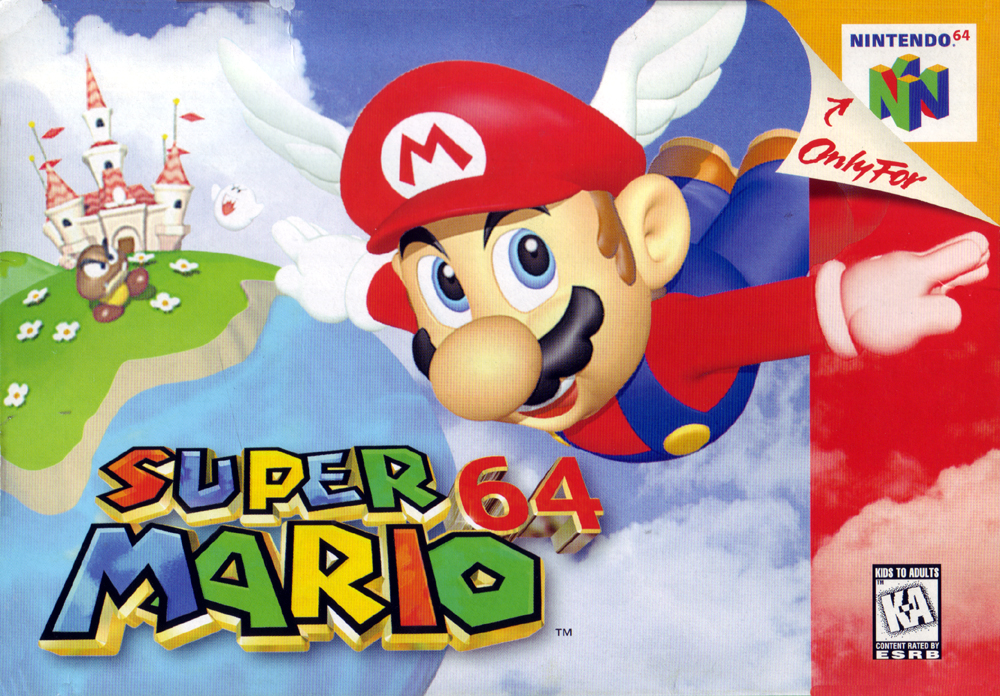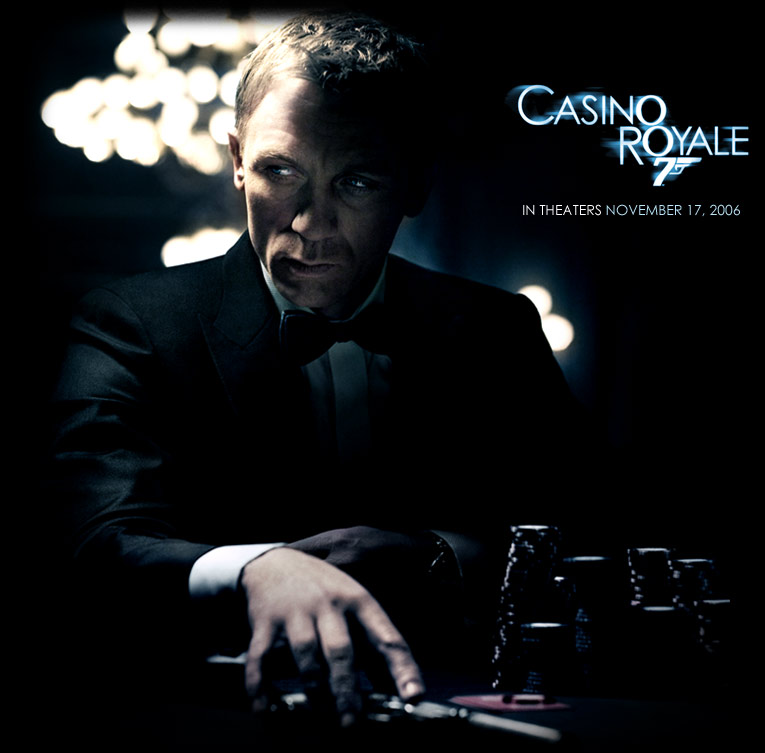Welcome to Monday Update…where things happen. Sometimes. Maybe.
First of all, I’d like to give a shout-out to Singapore native Yann Wong, who recently started a blog called Redeemed Gamer. Already, he’s got some scintillating articles, especially the fascinating exegesis on Eternal Sonata. I implore you to check it out!
Secondly, I’ve recently added Substance TV to the blogroll; while not neccessarily Christian in and of itself, Brian Castleberry and his team have a lot to offer in covering geek culture in general. It’s more than worth your while to pay them a visit or watch their videos (they’re especially in-depth with game mechanics, something I have a penchant for if you’re read anything on this blog).
Third, and I don’t know why I failed to mention this, I had a guest post on Cauller’s blog Love Subverts the other day. Cheekily called Zach’s “Escape” from Academia, it’s a little exploration into myself and why I’m embarking on this venture in the first place. It’s a bit more serious than my usual stuff, though, so be warned.
Even so, I’m still going to have plenty of content over Thanksgiving – unlike other websites, I keep you informed even when entertainment media lets you down over the holidays. Or I am just obsessed with writing something daily, I don’t know. Seems to work so far!
Phew! Now that I’ve gotten the shameless promotions out of the way, let’s get down to business, shall we?
Super Mario 64 – It’sa Me, Mario!
I find it remarkable that Super Mario 64 nearly perfected a genre, established a host of different game conventions that stuck around even today, and has never been outdone. Rather, every game that comes after it only offers an iterative improvement on the same model. That’s either quite flattering to the game, or a rather sad take on the medium’s current status (and by “medium” I by no means want to say “video games = art”; that’s a conversation for another day). Mostly, we’ve been blinded by our utter familiarity with the platformer – we know how to work and move in 3D space, and we assume that’s how Mario 64 also functions. Then, every 3D game with 3D movement takes advantage, looks back at an old classic, and thinks it knows what was great.
So what’s so good about it? The N64, quite honestly, has the best and most accurate analog stick there has ever been, or ever will be. I’ve played plenty of systems, and it feels like the pressure sensitive analogue stick quickly became obsolete for reasons I don’t understand. Here, Mario performs the literal extension of your thoughts. Want to run? Press forward hard. Want to tiptoe around a sleeping enemy? Tread lightly. Unlike, say, Assassin’s Creed, Mario never does anything than what you tell him to do. It’s impeccable control, and every mistakes becomes your own. That makes victory all the more satisfying when you perfect a particularly difficult segment. At times, I was so used to playing newer games that the accuracy of the controls became a hindrance. Nothing’s automatic here, and there’s quite an adjustment period. There’s even a real momentum system that dictates Mario’s movements! Seriously, this game is 16 years old?
Even the camera performs admirably under the constraints of “C-buttons”. For whatever reason, each stage’s camera nearly forces a diagonal camera angle (you know what I mean if you played it), but any good played can adjust the angle to their needs. Furthermore, the game’s more open-ended than I remember; it simply gives you a hint as to where the star might be, and away you go. There’s no real clues other than your powers of observation and your own ingenuity. Heck, I had trouble collecting all the red coins in Cool, Cool Mountain until I searched every nook and cranny of the stage (which, I might add, is exactly the perfect size without becoming too frustrating). And, to no one’s surprise, the lack of hand-holding was amazing. The game intuitively teaches you what it’s looking for in the introductory missions without so much of a whisp that it’s teaching you anything. That’s the sign of a great game.
So yes, you should play this again if you haven’t in a while. It’s on the Wii Virtual Console for cheap…
Casino Royale – Talk about contrasts!
I figured I may as well rewatch the previous two Daniel Craig “Bond” films before seeing Skyfall. If my memory serves me right, Casino Royale was a genuinely interesting film, even apart from being a James Bond vehicle. This is precisely because it treats him as both image, icon, AND human being at the same time. Whether or not that’s a symptom of the modern era’s desire for relatable heroes (or anti-heroes, which might be the case here), the technique works. Here is a Bond who, while also viciously murdering people (take a look at the intro and you tell me that doesn’t disturb you a bit), also falls in love and sweet talks the ladies. Honestly, the contrast’s rather stark and obvious; maybe it’s a commentary on the concept in general? Maybe we’re not supposed to idealize Bond as much as we sympathize for his position as an orphan and a weapon of mass destruction in his own right? Why does he even fight at all?
Not to get too philosophical about these things! After all, the primary motive for a Bond movie comes from its entertainment value, and that’s not lacking here. The key, I think, is not making Bond into Jason Bourne. If he’s just an action hero who kills people, he’s not very unique, is he? He’s suave and sophisticated, and intelligent. Much of the movie’s tension comes from a card game, not a tense torture sequence or action vehicle. Sure, you get plenty of that in its two hour and twenty-four minute run-time, but the psychology and tells of a well-played hand of Texas Hold’Em and wickedly funny dialogue endear you to the character. And, no shock here, you actually care about the characters because they take the time to develop them.
Much as I like the facile Bond who’s a constant womanizer, rampant crazed serial killer, and provides bizarre comic relief (Octopussy comes to mind – wow, is that terrible. Makes Bond look like a rapist almost), it’s nice to have an ALMOST realistic take. Anyone who doesn’t think Bond movies take place in a nonexistent hyperreality obviously doesn’t live in our realm, but that’s part of the fun.
There are a few flaws, however. Le Chiffe simply isn’t that interesting – sure, he’s got a weird physical ailment but “guys who plays cards well and gives money to terrorists” doesn’t really say “Bond villain” to me. Not that I want people with metal teeth or killer hats again, but Le Chiffe’s too normal and lacks any identity. Additionally, the movie does have a cohesive plot, but it bounces all over the place with a conclusion that messes with Bond convention a bit. There’s no big “climax” moment at the end or a denouement – too much stuff happens! So there’s that. Overall, though, it’s definitely held its own.
Now, of course, I still have to watch Quantum of Solace. Ugh. UGH. I don’t know what they were thinking with that one – it’s the James Bourne movie.
———————————————————————————————————————————————————————————————————————–
That’s Monday Update. Fantastic! Now onto whatever I usually write about. The same things. Probably not many serious things. Thanksgiving!


